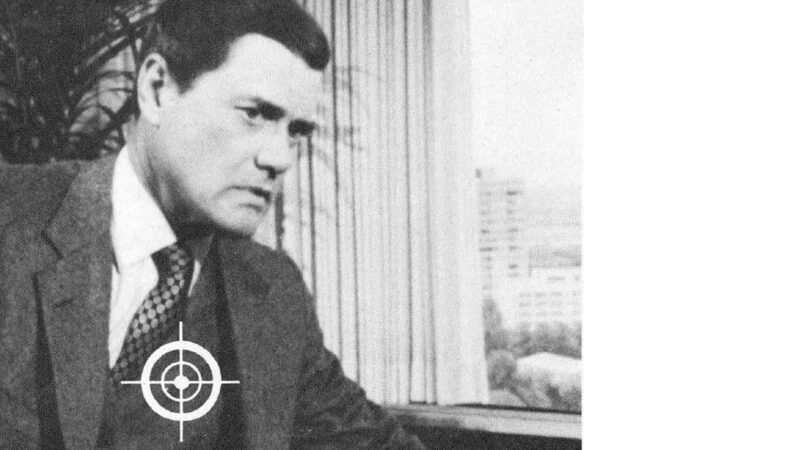Archives: November 2021
Excerpts from Reason's vaults

15 years ago
November 2006
"Is radical Islamic terrorism today as great a threat to the West as Nazism and then Communism were in their day? Hitler's and Stalin's empires were vastly more massive and powerful. The power of the Islamist terror network is more spread out and amorphous; this time the bombs could come from within. Yet our responses to Islamist terror in some respects have exceeded our responses to totalitarianism."
Cathy Young
"Terror Then and Now"
"The history of political campaigns shows that when candidates present clear, stark differences between themselves and opponents, citizens are better able to judge whom to support. When those lines are drawn sharply in harsh, tough ads and attacks in the press, it's the voters who win."
David Mark
"Attack Ads Are Good for You!"
20 years ago
November 2001
"Because the Internet is still developing so rapidly, reporters and politicians are easy prey for manufactured panics. It would be much more difficult to create such a fright over a more familiar product, such as automobiles. Nobody would believe today that if General Motors opened its own chain of filling stations, GM would take over all American transportation. But on the Internet, folks who can't tell the male end of a dongle from a TCP stack are often suckers for silly claims about chokeholds."
David B. Kopel and Joseph Bast
"Antitrust's Greatest Hits"
"Over the years, what might be called the 'just enough government' theme has had its share of champions, often from the conservative end of the political spectrum. Jack Kemp, for instance, once warned against 'root canal economics,' and George Will waged a war against 'taxophobia.' But the idea is usually received very badly. Hard-core right-wingers call it selling out and leftists denounce it as cowardly or reactionary. American politics has never developed a strong strain of Toryism: You either favor more government or less."
Jeremy Lott
"Complex Untruth"
20 years ago
November 2001
"Conservative students enjoy their newfound role as champions of free speech, taking sardonic pleasure in depicting the righteous left as neo-McCarthyites. On many campuses, conservatives—usually with the help of funds from highly conservative foundations—are publishing alternative papers. They tend to be quite lively and witty (humor being in exceedingly short supply among the Jacobins). And these papers take much muckracking pleasure in exposing the surrenders…of university administrators to the demands of the politically correct."
Nat Hentoff
"The New Jacobins"
"The response to drunk driving is part of the widespread American practice of forcing or pressuring people into A.A.-style treatment. The courts (through sentencing, probation, and parole), government licensing and social-service agencies, and mainstream institutions such as schools and employers are pushing more than a million people into treatment each year. The use of coercion and pressure to fill the rolls of treatment programs has distorted the U.S. approach to substance abuse: The A.A. model, which uses a spiritual approach to treat the 'disease' of alcoholism, would not have as pervasive an influence under conditions of free choice."
Archie Brodsky and Stanton Peele
"A.A. Abuse"
40 years ago
November 1981
"Let the record show that we understand the nature of the problem: High-income communities have used zoning and other growth-control measures to restrict the supply of housing. As a consequence, house prices have soared, and middle- and lower-income families have been excluded."
M. Bruce Johnson
"Is the Sun Setting on the American Dream?"
"It is generally unrecognized by the artist that, despite the demonstrable value of art in human life, in fact art is a marginal endeavor. The pursuit of art is only possible when there is already food on the table. The existence of a market for art depends on the creation of wealth above and beyond what is needed for a modest existence. It would seem to follow that artists would appreciate the economic motivations of moneymakers. But the connection between an economically flourishing society and the enhanced support of artistic endeavor is little understood."
Cheri Adrian
"Why Shoot J.R.?"
"Public policy concerning new technological industries tends to be set during their infancy. Then, simply because of bureaucratic inertia, the initial regulatory apparatus and governing principles do not grow with the industry. So regulation freezes around procedures that prevent innovation and raise the costs of competing."
James Bennett
"The Second Space Race"
Show Comments (19)